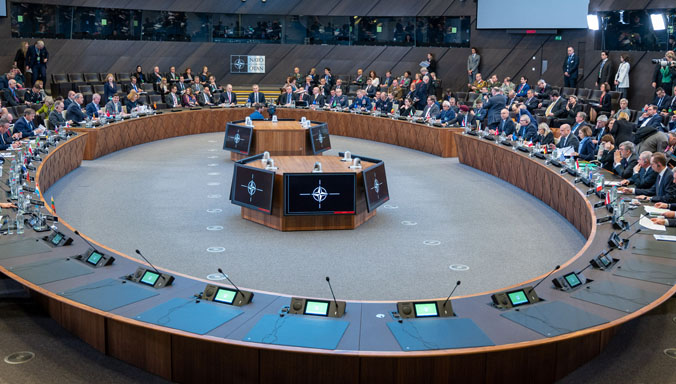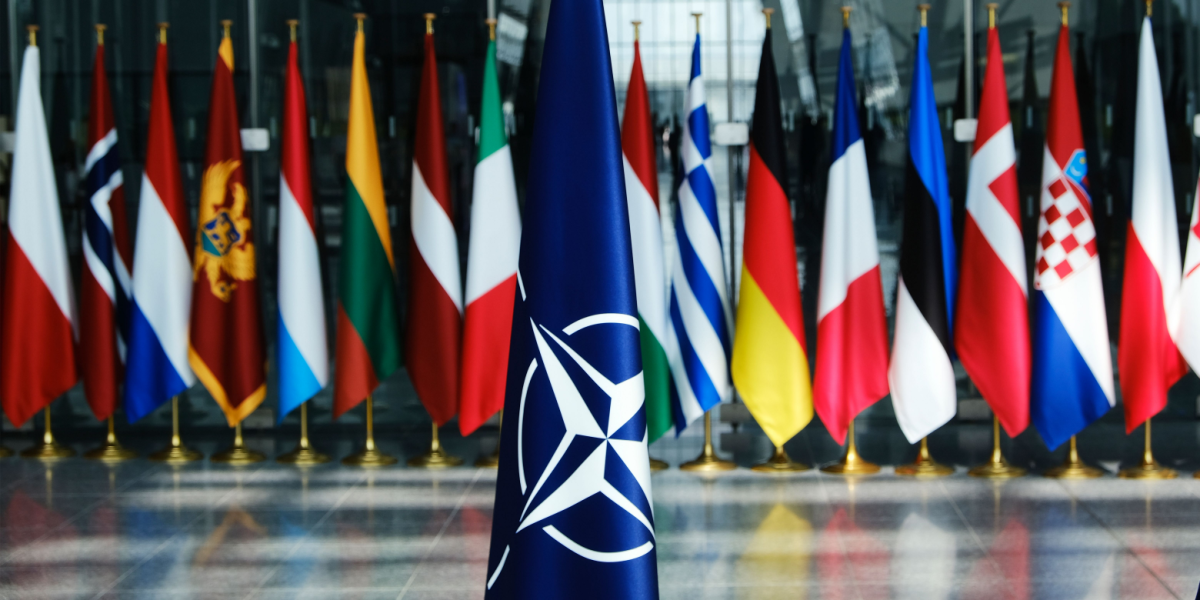- NASA Discovers Potential Signs of Life in Mars Rock Sample
- Why OFSS share price rising today.
- Hillhouse buys minority stake in Carlyle-backed Quest Global at $4.5b valuation
- ‘Jailed a tantri for revenge’: BJP, Congress launch fresh offensive against Pinarayi Vijayan govt over Sabarimala
- Antimicrobial Textile Market Size to Reach USD 25.55 Billion by 2035
On September 10, 2025, Poland invoked NATO Article 4 after shooting down 19 Russian drones that violated its airspace during a major Russian aerial attack on Ukraine. Article 4, a rarely used provision of the NATO treaty, allows member states to request consultations when their territorial integrity, political independence, or security is threatened.
NATO Article 4 Explained: Russia Drones Spark Poland Talks

On September 10, 2025, Poland invoked NATO’s Article 4, a significant move prompted by the violation of its airspace by 19 Russian drones during a massive Russian aerial assault on Ukraine. This rare invocation has thrust NATO’s collective defense mechanisms into the spotlight, raising concerns about escalating tensions in Eastern Europe. But what exactly is Article 4, and why has Poland’s response to Russian aggression captured global attention? This article explores the implications of this event and the mechanics of NATO’s consultation process.
What is NATO Article 4?
NATO’s Article 4, part of the 1949 North Atlantic Treaty, allows any member state to request consultations when it believes its territorial integrity, political independence, or security is threatened. Unlike Article 5, which mandates collective defense in response to an armed attack, Article 4 is a non-military mechanism focused on dialogue and coordination. It has been invoked only a handful of times in NATO’s history, often in response to regional instability or provocations, such as Turkey’s multiple invocations over Syrian conflicts or Baltic states’ concerns about Russian activities.
The Russian Drone Incursion: What Happened?
The incident began late on September 9, 2025, when Russia launched a barrage of drones targeting Ukraine. Polish authorities reported that 19 of these drones crossed into Polish airspace, an act Prime Minister Donald Tusk described as a “large-scale provocation.” The Polish military, with support from NATO allies, swiftly shot down the intruding drones, citing them as a “direct threat.” Social media posts from sources like @AP and @NATO on X (twitter) confirmed the incident, with NATO Secretary General Mark Rutte condemning Russia’s “reckless behaviour” and affirming the alliance’s commitment to defending “every inch” of its territory.
Why Poland Invoked Article 4
Poland’s decision to invoke Article 4 reflects its growing alarm over Russian aggression spilling beyond Ukraine’s borders. The drone incursions follow a pattern of incidents, including a 2022 missile strike in Poland that killed two civilians, which Polish President Andrzej Duda referenced as an earlier attempt by Ukraine to draw NATO into the conflict. While that incident was later attributed to Ukrainian air defenses, the 2025 drone violations are explicitly tied to Russian actions, heightening fears of escalation. Poland’s invocation signals a call for NATO to assess the threat collectively and prepare for potential further violations.
NATO’s Response and Global Implications
Following Poland’s request, NATO’s North Atlantic Council convened to discuss the incident. Rutte’s statements emphasized solidarity with Poland and vigilance against Russian provocations. However, NATO’s response under Article 4 is limited to consultations, not military action, as some X posts have noted, with one user (@rshereme) on X (twitter) pointing out that Western European armies are too small to engage directly. The invocation underscores the delicate balance NATO must maintain: supporting Ukraine while avoiding direct confrontation with Russia, which could risk broader conflict.
What Happens Next?
The invocation of Article 4 does not automatically lead to military escalation, but it amplifies diplomatic pressure on Russia. Poland’s proactive stance, backed by NATO’s unified response, may deter further airspace violations. However, the incident highlights the fragility of regional security, especially as Russia’s war in Ukraine shows no signs of abating. Web sources, such as Reuters, note that Poland has bolstered its air defenses with U.S. and UK support, signaling preparedness for future threats. The global community watches closely as NATO navigates this crisis, balancing deterrence with restraint to prevent a wider war.
Conclusion: A Wake-Up Call for NATO
Poland’s invocation of NATO Article 4 in response to Russian drone incursions marks a critical moment in the Russia-Ukraine conflict’s spillover into NATO territory. By triggering consultations, Poland has underscored the urgency of addressing Russian provocations while reinforcing NATO’s commitment to collective security. As tensions simmer, the alliance faces the challenge of maintaining unity and vigilance without escalating into direct conflict.
The world awaits NATO’s next steps, as this incident serves as a stark reminder of the fragile line between regional skirmishes and global consequences.
NHPC enacts plan as Salal reservoir's capacity in Jammu & Kashmir shrinks 96% due to siltation
NHPC has launched a major desilting operation at the Salal Dam reservoir in Jammu and Kashmir, where silt buildup has reduced capacity by 96%, aiming
SBI aims to hike its green advances portfolio up to 10 pc by 2030
State Bank of India sets ambitious target to boost its green advances to 7.5-10% of total portfolio by 2030, supporting India's sustainable energy shi
After 14-hour surgery, Dipika Kakar confronts another medical challenge
Television actress Dipika Kakar faces a new liver cyst just months after her grueling 14-hour cancer surgery, prompting another medical procedure for
FMCG makers looks volume-based growth in FY’27 with EBITDA improvements as inflation softens
FMCG companies in India are shifting towards volume-driven growth in FY27, anticipating EBITDA improvements as softening inflation eases input costs a











